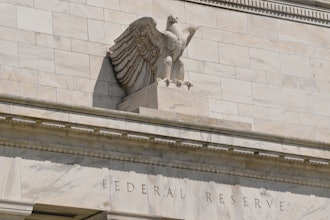Global energy analysts suggested last week that oil prices could be on the rebound after months of depressed levels.
Prices are still well below their mid-2014 peak, but they jumped by about 50 percent since the beginning of the year as market factors began "working their magic," according to the International Energy Agency. Although sluggish economies continue to hinder oil demand, severe cutbacks among higher-cost producers appear to be moving supply closer to demand.
As The Wall Street Journal reports, however, the gap between supply and demand could be much smaller than previously believed.
The IEA estimates the global oversupply of oil at about 1.9 million barrels per day, but just over 1 million barrels per day were either in storage or transit.
As a result, about 800,000 barrels per day were unaccounted for — the largest level in 17 years.
The IEA attributes such discrepancies to overstated supply, understated demand or stockpile changes in nations outside the Organization for Economic Co-operation and Development — such as China — where statistics are considered somewhat suspect.
Some analysts, however, responded that it's unlikely that oil stockpiles are accumulating at that level outside the OECD and attributed the number to faulty accounting.
“The most likely explanation for the majority of the missing barrels is simply that they do not exist,” analyst Paul Horsnell of Standard Chartered told the Journal.
That could pose problems since, at its height, the oil in question accounted for more than 40 percent of the global oversupply. If the supply glut is smaller than investors previously believed, prices could jump much more quickly.
The IEA said last month projected that upstream oil investment is expected to decline again this year, which could increase the chances of a price spike as producers are unable to quickly capitalize on rebounding prices.
“It is easy for consumers to be lulled into complacency by ample stocks and low prices today, but they should heed the writing on the wall," warned IEA Executive Director Fatih Birol. "The historic investment cuts we are seeing raise the odds of unpleasant oil security surprises in the not-too-distant future."






















